REVIEW: Rubaboo at Grand Theatre/Arts Club Vancouver
Métis performer and writer Andrea Menard opens her new show Rubaboo by explaining what the title means. Rubaboo, a word derived from Michif (the language of the Métis peoples), describes a soup or stew, the kind you often make out of leftovers. Menard’s Rubaboo is exactly that: ingredients. In this case those ingredients are storytelling, songs, teachings, and ceremony — put together in a cabaret style show designed, as she says, to “feed your ravenous souls.” Co-produced by London, Ontario’s Grand Theatre and Vancouver’s Arts Club Theatre Company and directed by Alanis King, Rubaboo features words by Menard and music by Menard and Robert Walsh (who is also the production’s music director and one of its onstage performers).
On entering the theatre, I was immediately struck by Cimmeron Meyer’s set design. Featuring artwork by Métis artist Leah Dorion, the set features a series of tall, intricate murals, which, while beautiful on their own, come alive under Kimberly Purtell’s lighting design. As a background skyscape moves through sunrises and sunsets, the accompanying lighting brings out different images within the murals, shifting to match the tone of the song or story being presented.
The dynamism of these visuals serves as an effective backdrop for a theatrical experience that is, as Menard says in a program note, “not like a typical play you see at a Canadian theatre.” Divided into four sections, each based on an element from Indigenous medicine wheel teachings, Rubaboo covers a lot of ground within a relatively short amount of time. Each section brings its own unique tone and focus — some are humorous, others are more reflective — but the overall effect is engaging and fluid. Throughout, Rubaboo also maintains a strong focus on community. Early in the show, Menard addresses the audience, saying “we’re gonna sit together in a circle so we can all see each other.” While this statement refers more to the show’s ideology than the theatre’s physical space (the audience is still seated within the proscenium setup of the Grand’s Spriet Stage), this idea of seeing and being seen becomes and remains a central throughline in the show’s content, plus the ways the audience is asked to engage with the work.
Throughout the production, Menard shares the stage with musical collaborators Nathen Aswell, Karen Shepherd, and Robert Walsh. While Menard primarily acts as the group’s leader (with the others providing accompaniment and supporting vocals), each musician also takes on leadership roles themselves, sharing the responsibilities of storytelling and music-making. There is a clear sense of trust and community between the performers, as they interact with, play off of, and hold space for each other over the course of the show, and the result is a sort of conversation, where diverse perspectives and experiences are welcomed and shared.
The music itself takes this sense of conversation further. Vibrant, melodic, and often uplifting, Rubaboo’s songs feature lyrics in Michif, English, and French, and span a wide variety of instrumentations, from drumming-accompanied vocals to solo fiddle. Menard’s skill as a lyricist is also clear throughout: the songs range from the humorous “Memmere’s Rubaboo,” a ballad inspired by the music of Pierre Falcon which centres the experience of Métis matriarchs, to “Where is God in this Place,” a raw and powerful meditation on the impact of the residential school system. Supported by Mary Jane Coomber’s sound design (which seamlessly blends prerecorded soundscapes with the live onstage performances), each of Rubaboo’s songs has a distinct story to tell. As the audience is guided from one piece to another, they are also frequently invited into this musical conversation themselves, from clapping along to songs earlier in the show to singing with the musicians by its end.
From my own positionality as a white, settler Canadian, Rubaboo also provides a powerful learning opportunity. Throughout the show, Menard shares vignettes of Métis history, telling stories which are often excluded from school curricula, and setting the record straight when it comes to stories that have been manipulated and misrepresented. The question of who controls a given narrative is a continual theme throughout the show, and just as the audience is invited into community with the performers, we are also asked to bear witness and be open to a decolonization of our knowledge of these histories.
Overall, Rubaboo is a unique theatrical experience that lives up to its name — it’s a wonderful combination of ingredients brought together into a whole that is complex, communal, and warm; one which feeds curiosity and a desire for community and understanding.
Rubaboo runs at the London Grand through March 25. Tickets are available here.

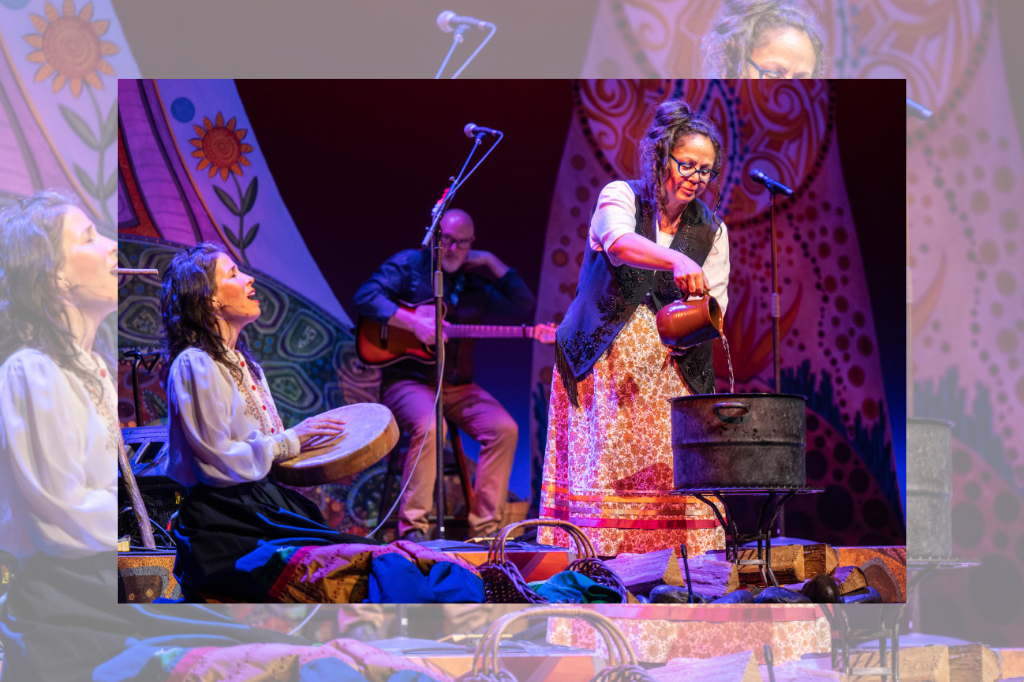
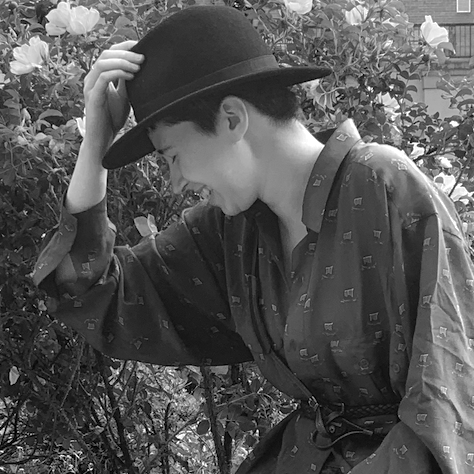






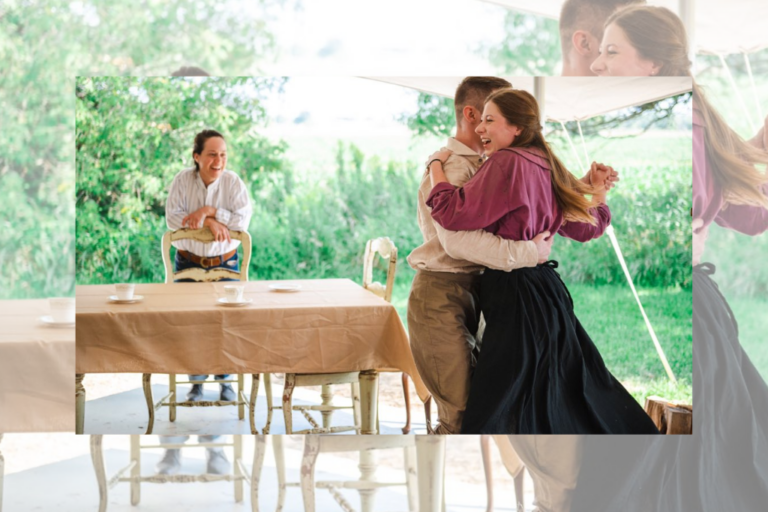

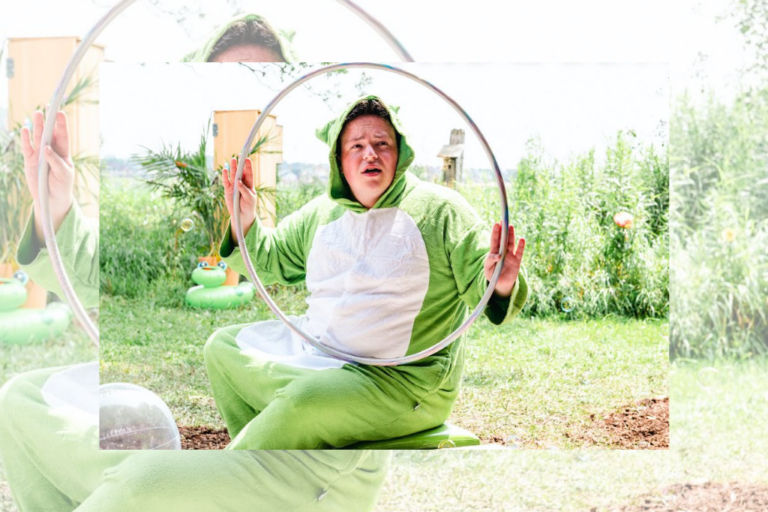

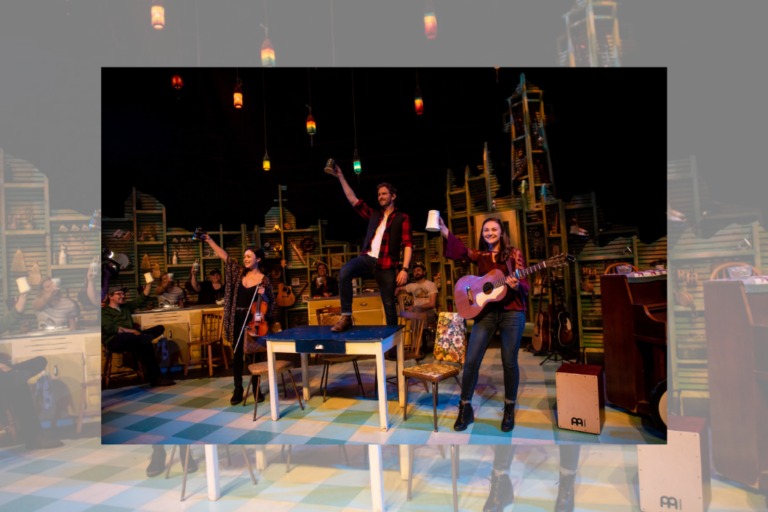
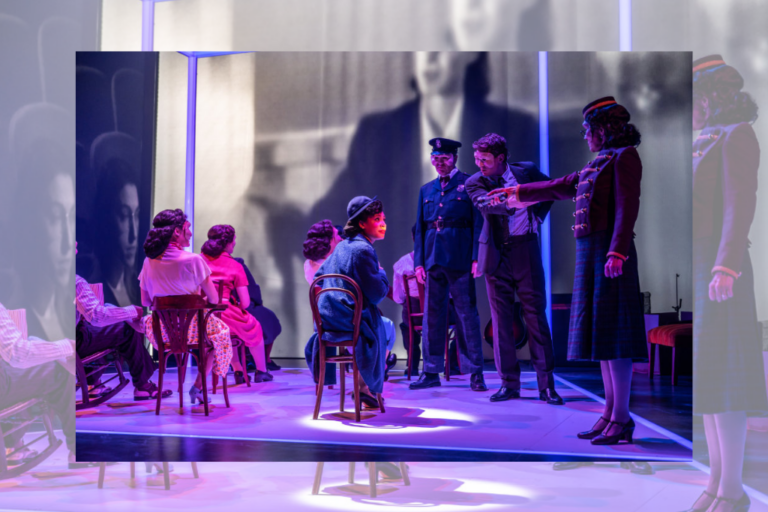
Comments